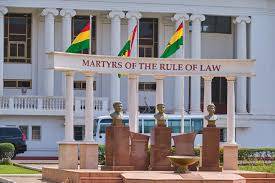Ghana's Supreme Court Set to Deliver Judgment on the Four-Seat Saga in Parliament
In a significant legal development, the Supreme Court of Ghana is poised to deliver its long-awaited judgment on the controversial four-seat saga in the country’s Parliament. This case, which has captivated the nation, centres on a dispute over the legitimacy of parliamentary seats, with potential implications for the balance of power in the legislature and the overall governance of the country.
Background of the Case
The saga began following the December 2020 general elections, which resulted in a highly contested and closely fought race for parliamentary seats. After the final results were declared, a narrow majority emerged for the ruling New Patriotic Party (NPP), but there were immediate challenges to the legitimacy of the outcomes in several constituencies.
In particular, the issue of four parliamentary seats – one in the Ashanti Region and three in the Volta Region – became the subject of intense scrutiny. The opposition National Democratic Congress (NDC) argued that irregularities had occurred during the elections in these constituencies, calling for a revision of the results and the annulment of the affected seats. The NPP, on the other hand, defended the legitimacy of their victories, contending that the elections had been free and fair.
The dispute led to legal challenges in the High Court, which ruled in favor of maintaining the disputed results. However, the NDC, dissatisfied with the ruling, appealed the case to the Supreme Court, seeking to have the results in the four constituencies overturned and fresh elections ordered.
Legal and Political Implications
The importance of the case lies not only in the specific parliamentary seats in question but also in its potential to shape the future of Ghanaian democracy. A ruling in favour of the NDC could result in a reconfiguration of Parliament, potentially altering the balance of power between the two major political parties. With Ghana’s legislature currently consisting of 275 seats, any change in the number of seats held by either party could have a profound impact on the functioning of Parliament and the passage of key legislation.
Moreover, the case raises broader concerns about the integrity of the electoral process and the ability of the judicial system to ensure fairness in elections. The outcome could set a significant precedent for future electoral disputes in Ghana, reinforcing or challenging the credibility of the country's electoral institutions.
Legal Challenges and Arguments
Throughout the proceedings, both parties have presented their arguments before the Court. The NDC’s legal team has argued that the elections in the disputed constituencies were marred by widespread irregularities, including allegations of voter suppression, ballot stuffing, and other malpractices that violated the principles of a free and fair election. They maintain that the affected constituencies should be declared null and void, and fresh elections should be held to ensure that the will of the people is accurately represented.
In contrast, the NPP has asserted that the electoral process was carried out in accordance with the law and that no substantial evidence of fraud or malpractice had been presented. They argue that the results from the affected constituencies were valid and should be upheld, emphasizing the stability and legitimacy of the democratic process.
The Road Ahead
As the Supreme Court prepares to issue its judgment, the nation is on edge, awaiting a decision that could have significant political ramifications. Whatever the outcome, the ruling will be seen as a key moment in the ongoing evolution of Ghana’s democracy, particularly regarding the role of the judiciary in resolving electoral disputes.
While the case may be resolved in the legal arena, its political effects will likely resonate throughout the country for years to come, as political parties, civil society organizations, and the electorate await a verdict that could reshape the landscape of Ghanaian politics.


